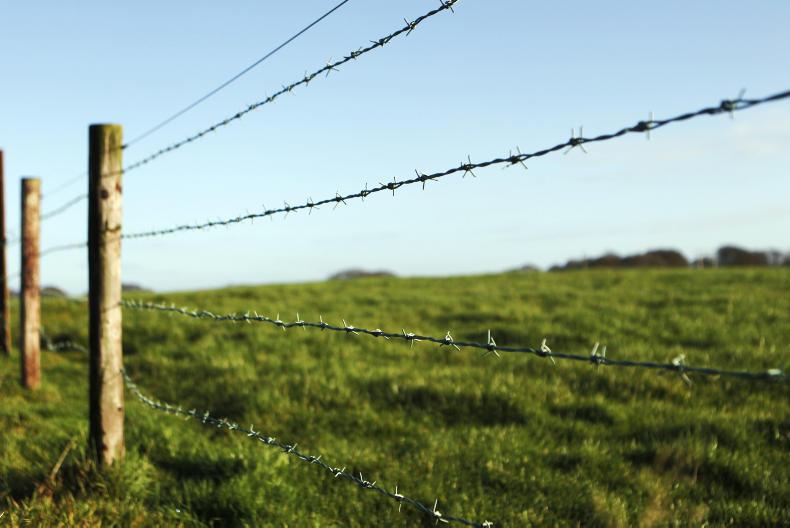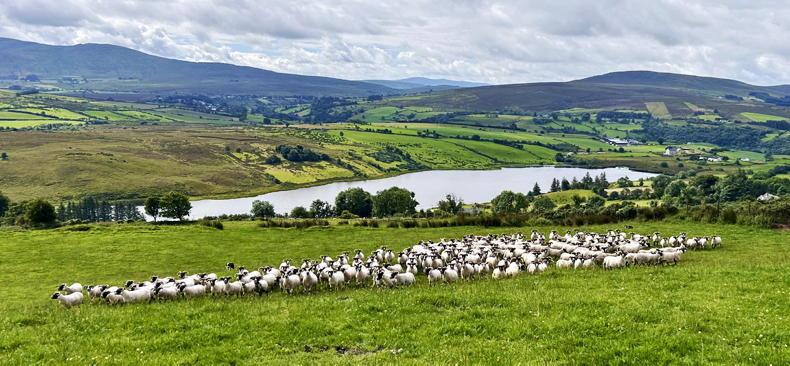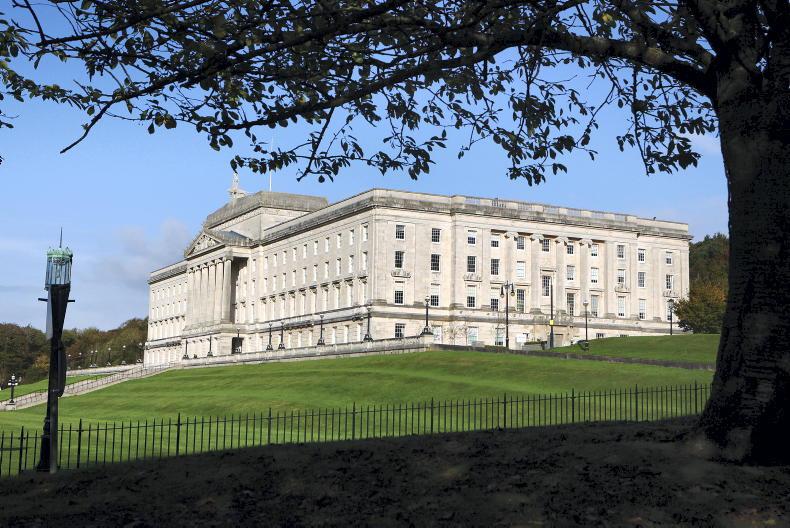In 2016, 56% of Northern Ireland (NI) voted to remain in the European Union in the Brexit referendum. A total of 790,523 people cast their votes, with every border county in NI voting to remain.
Over two years after the referendum, farmers on both sides of the border are growing increasingly concerned as the potential for a no-deal Brexit grows.
Frictionless trade has been accepted as a given for many years.
The future of cross-border trade is complicated by the lack of an Assembly in Stormont
The most recent Revenue figures show that 339 farmers paid tax in both NI and the Republic of Ireland and benefitted from trans-border workers relief for cross-border workers.
The cross-border trade of livestock is as regular as the seasons, with 423,000 lambs moving south last year from NI for processing and 466,000 pigs going north for processing.
In any given year, there are up to 33,000 milk lorry crossings at the border.
The future of cross-border trade is complicated by the lack of an Assembly in Stormont.
For over two years, the 50,000 farmers and farm workers in NI have been mainly relying on the Democratic Unionist Party (DUP) for representation at Westminster on matters concerning cross-border trade and farm payments post-Brexit.
The DUP, which props up the Conservative government, have been staunchly opposed to the backstop, while the EU and Irish refuse to see it withdrawn from the Brexit deal.
However, most other political parties in NI, along with many leaders in agri-business, want to see the backstop retained.
The current political impasse has left border communities in limbo as March 29 approaches.
Read more
Brexit: EU agri food bodies call for 18-month grace period
Potato growers warned of Brexit disruption for seed imports
In 2016, 56% of Northern Ireland (NI) voted to remain in the European Union in the Brexit referendum. A total of 790,523 people cast their votes, with every border county in NI voting to remain.
Over two years after the referendum, farmers on both sides of the border are growing increasingly concerned as the potential for a no-deal Brexit grows.
Frictionless trade has been accepted as a given for many years.
The future of cross-border trade is complicated by the lack of an Assembly in Stormont
The most recent Revenue figures show that 339 farmers paid tax in both NI and the Republic of Ireland and benefitted from trans-border workers relief for cross-border workers.
The cross-border trade of livestock is as regular as the seasons, with 423,000 lambs moving south last year from NI for processing and 466,000 pigs going north for processing.
In any given year, there are up to 33,000 milk lorry crossings at the border.
The future of cross-border trade is complicated by the lack of an Assembly in Stormont.
For over two years, the 50,000 farmers and farm workers in NI have been mainly relying on the Democratic Unionist Party (DUP) for representation at Westminster on matters concerning cross-border trade and farm payments post-Brexit.
The DUP, which props up the Conservative government, have been staunchly opposed to the backstop, while the EU and Irish refuse to see it withdrawn from the Brexit deal.
However, most other political parties in NI, along with many leaders in agri-business, want to see the backstop retained.
The current political impasse has left border communities in limbo as March 29 approaches.
Read more
Brexit: EU agri food bodies call for 18-month grace period
Potato growers warned of Brexit disruption for seed imports









SHARING OPTIONS